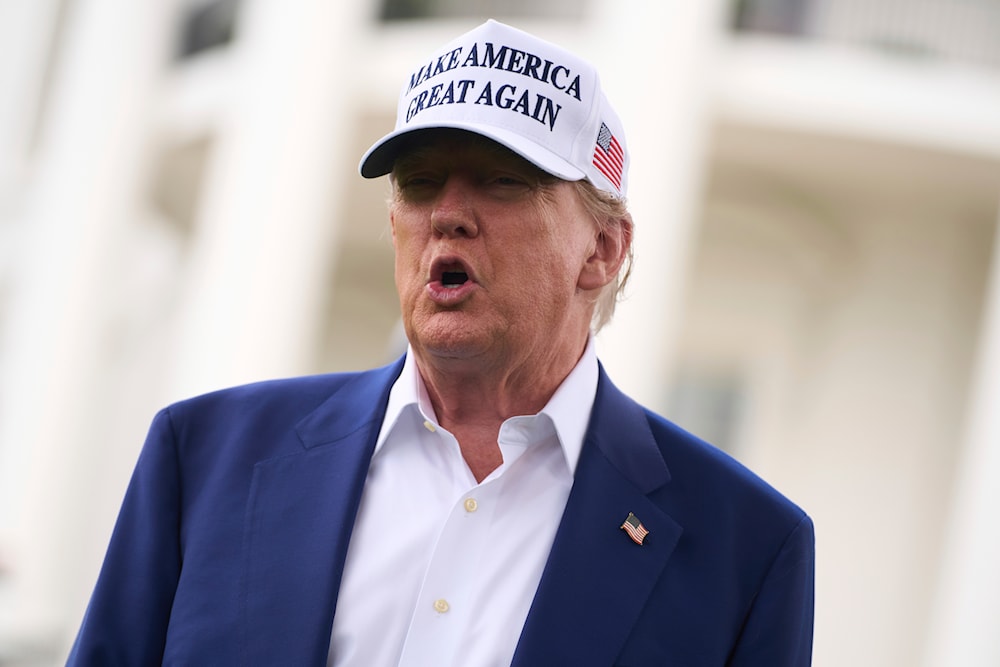Trump joins in war on Iran, gambles his second term, reputation: FT
Following the US strikes on Iran, supporters fear a return to “forever wars", despite Trump's promise of ending them.
-

US President Donald Trump talks with reporters before a flag pole is installed on the South Lawn of the White House, Wednesday, June 18, 2025, in Washington (AP)
US President Donald Trump has taken the most consequential gamble of his presidency, according to the Financial Times, by launching strikes on Iranian nuclear facilities, joining "Israel" in its escalating war on the Islamic Republic.
The move reverses his campaign promise to avoid new military conflicts, putting his second term into question.
Trump framed the attack as a limited, high-impact operation that could neutralize Iran’s nuclear threat. But analysts and critics warn that it could provoke severe regional retaliation and expose thousands of US troops to danger.
“This is a massive gamble by President Trump,” said Senator Jack Reed. “Nobody knows yet whether it will pay off,” he said, as reported by the FT.
In his televised remarks, Trump said Iran must now choose between “peace or tragedy,” signaling openness to more strikes. He warned that “many targets” remain if Iran does not stand down.
Conservative icons like Steve Bannon and Tucker Carlson voiced sharp opposition, accusing Trump of being manipulated by "Israel" into a war of choice. “Why are we doing the heavy lift here?” Bannon asked. Carlson went further, calling the strikes unjustified and based on “zero credible intelligence.”
According to the Financial Times, even longtime supporters expressed disillusionment. Podcaster Theo Von said, “It just feels like we’re working for Israel,” while libertarian comedian Dave Smith called it “an illegal war of aggression.”
Some Republicans defended the move. House Speaker Mike Johnson said Trump had acted to stop Iran from acquiring nuclear weapons, calling it “America First policy in action.” Yet the split within the GOP signals a potentially unstable coalition as the conflict unfolds, according to the Financial Times.
Trump’s shifting foreign policy and Israeli pressure
Critics say Trump’s shift from diplomacy to war was catalyzed by Israeli pressure. Bannon claimed Netanyahu knew only US bunker-busting bombs could strike sites like Fordow and acted to force Trump's hand.
There has been concern that Trump is being led to join in the escalation, according to the Financial Times, citing growing unease in nationalist circles. Meanwhile, Iran’s response remains uncertain, and US bases across the Middle East have been placed on high alert.
Lawmakers from both parties questioned the legality of the operation. Alexandria Ocasio-Cortez called for impeachment, while Republican Thomas Massie denounced the move as “not constitutional". Critics also noted Trump bypassed Congress without explaining the intelligence behind the decision, according to the FT.
Polling shows Trump’s approval at 46.9% following the strike, with 51% disapproving. Analysts warn that sustained war, especially if US casualties or energy shocks follow, could rapidly erode public support.
As Aaron David Miller of the Carnegie Endowment noted, “He has margin now, but not forever,” as cited by the Financial Times.

 3 Min Read
3 Min Read









